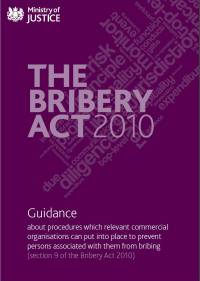These are some recent compliance-related stories that caught my eye.

Lessons of the Financial Crisis: The Dangers of Short-Termism by Sheila C. Bair, Chairman of the Federal Deposit Insurance Corporation, in the Harvard Law School Forum on Corporate Governance and Financial Regulation
[I]n my opinion, the overarching lesson of the crisis is the pervasive short-term thinking that helped to bring it about. Short-termism is a serious and growing problem in both business and government. I would like to devote my remarks to explaining what I mean by this, and discussing how I think it plays into the policy challenges arising from the crisis.
SEC works to get rid of “The Lease to Nowhere” by Sonya Hubbard in Footnoted
The temperature may have officially reached the high 80s yesterday afternoon in Washington, D.C., but we bet it was significantly hotter in room 2167 of the Rayburn House Office Building. That’s where the SEC’s Chairman, Mary Schapiro, and its Inspector General, H. David Kotz, were in the hot seat to answer questions for the Congressional Sub-Committee on Economic Development, Public Buildings, and Emergency Management (which falls under the auspices of the Committee on Transportation and Infrastructure) about the $556 million, 10-year lease that the SEC signed last summer for 900,000 square feet of space in D.C.’s Constitution Center.
How Is Law School Like the NFL Draft? Jonathan Tjarks in Policymic
Admittance into a top-14 law school, like a scholarship from a top-10 college football program, is the culmination of a lifetime of striving. Of the over 100,000 high school seniors who play football, fewer than 3,000 sign Division I letters of intent. Similarly, the top 25% in Harvard Law’s 2009 class had an average GPA of 3.95 and a LSAT score of 175, which puts them in the 99th percentile of the over 100,000 test takers each year.
Can a Libyan Rebel Be a Foreign Governmental Official under the FCPA? by Tom Fox in FCPA Compliance and Ethics Blog
So I began to wonder, can a person be a Foreign Governmental Official when the persons they are assisting, the Libyan rebels, are not recognized as the national government of a country. Even if a government is under economic sanctions by almost every country in the world that does not necessarily mean that it is not the government of that country.





 With the recent release of the Guidance under the UK Bribery Act, I decided to pull together some other stories:
With the recent release of the Guidance under the UK Bribery Act, I decided to pull together some other stories: